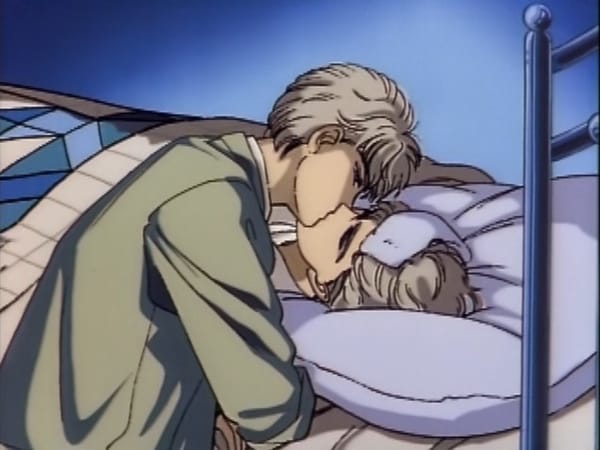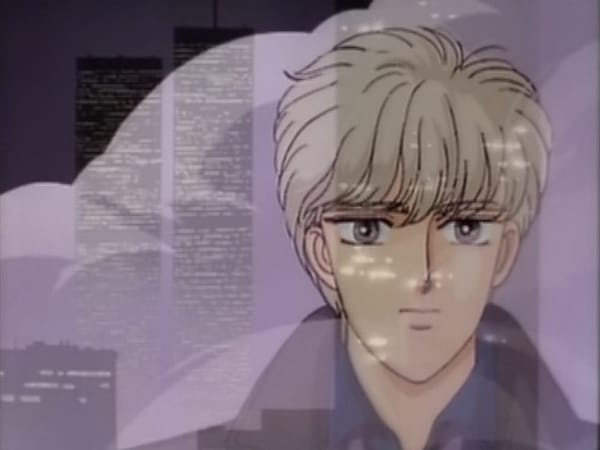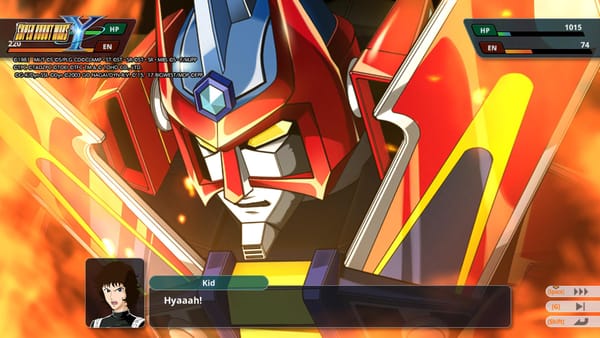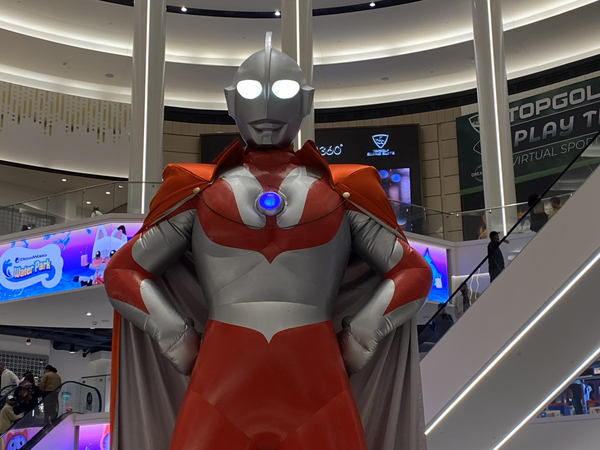Trains rule, so it logically follows that Train To The End Of The World is the anime of the season
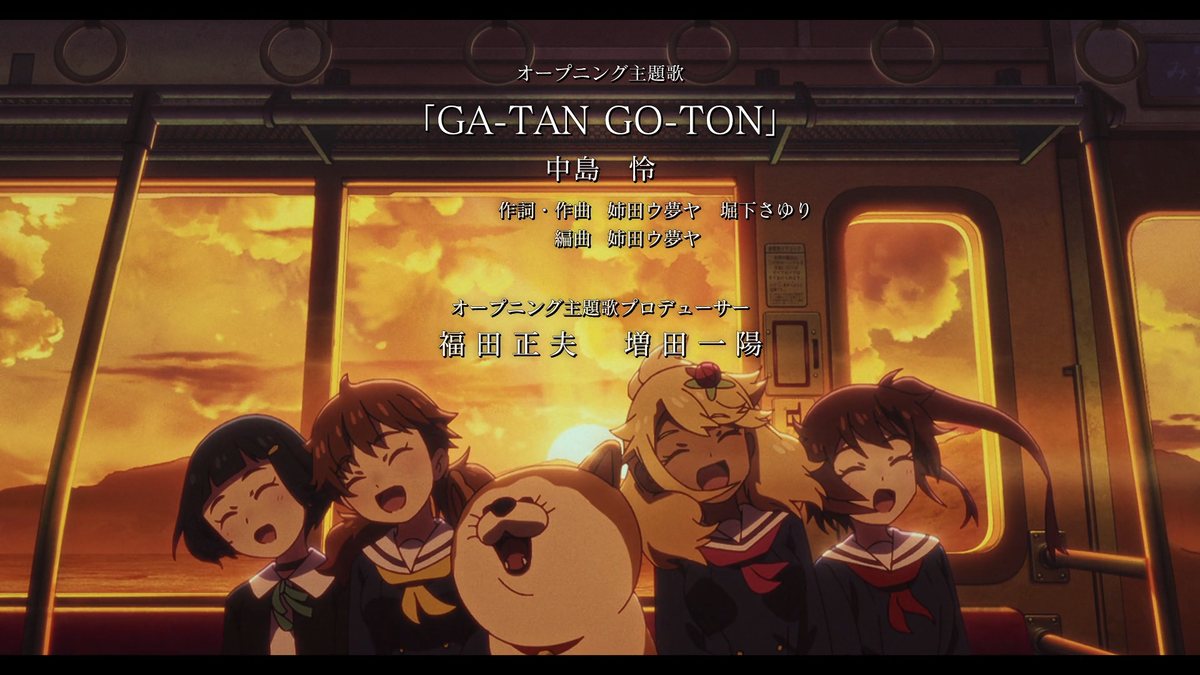
The first event of Train to the End of The World is the activation of 7G internet exploding the world. Things get significantly weirder from there.
Train to the End of the World is a mellow travelogue in a comical, surreal post-apocalypse, like if the Yurucamp girls were trapped in a particularly goofy gag manga and decided to play it straight. While certainly influenced by current trends (relaxed healing anime, yuri-baiting), Train insists upon doing things its own way. Its chill chaos is an unpredictable delight every episode, and for shocking and surprising me every week, this was certainly my “anime of the season”.
The Gamesoft Robo Fun Club is a solo effort that depends on paid subscriptions to survive. I'd love to see you become a free or maybe even paid subscriber!
The world of Train— which as far as we know may not exist beyond a single Japanese railroad line— is certainly “destroyed” in that society cannot proceed as it did. Communications have been cut off and space itself has been physically stretched out, leaving individual towns basically isolated and knowledge of the larger world scarce. Militarized delivery companies carry out the apparently deadly work of trading and delivering goods from one town to another.
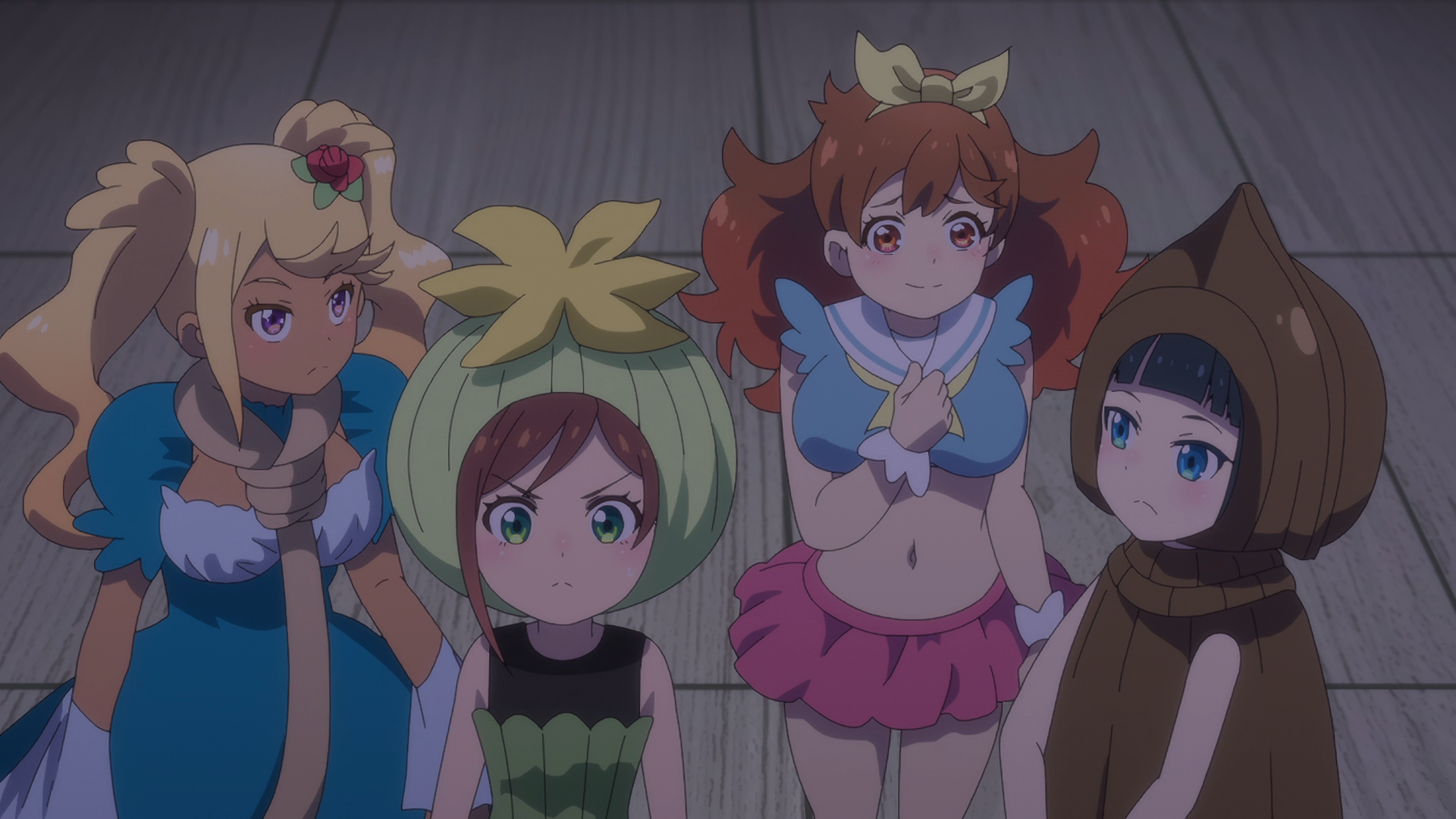
But the fun part is that every town is ruined in its own weird way: we open in Agano, Niigata, where the adults have all transformed into animals. Our heroines— the four remaining girls in the village— have adjusted to life on pause, with some regrets. As we’ll find out, they’re lucky their home is still habitable.
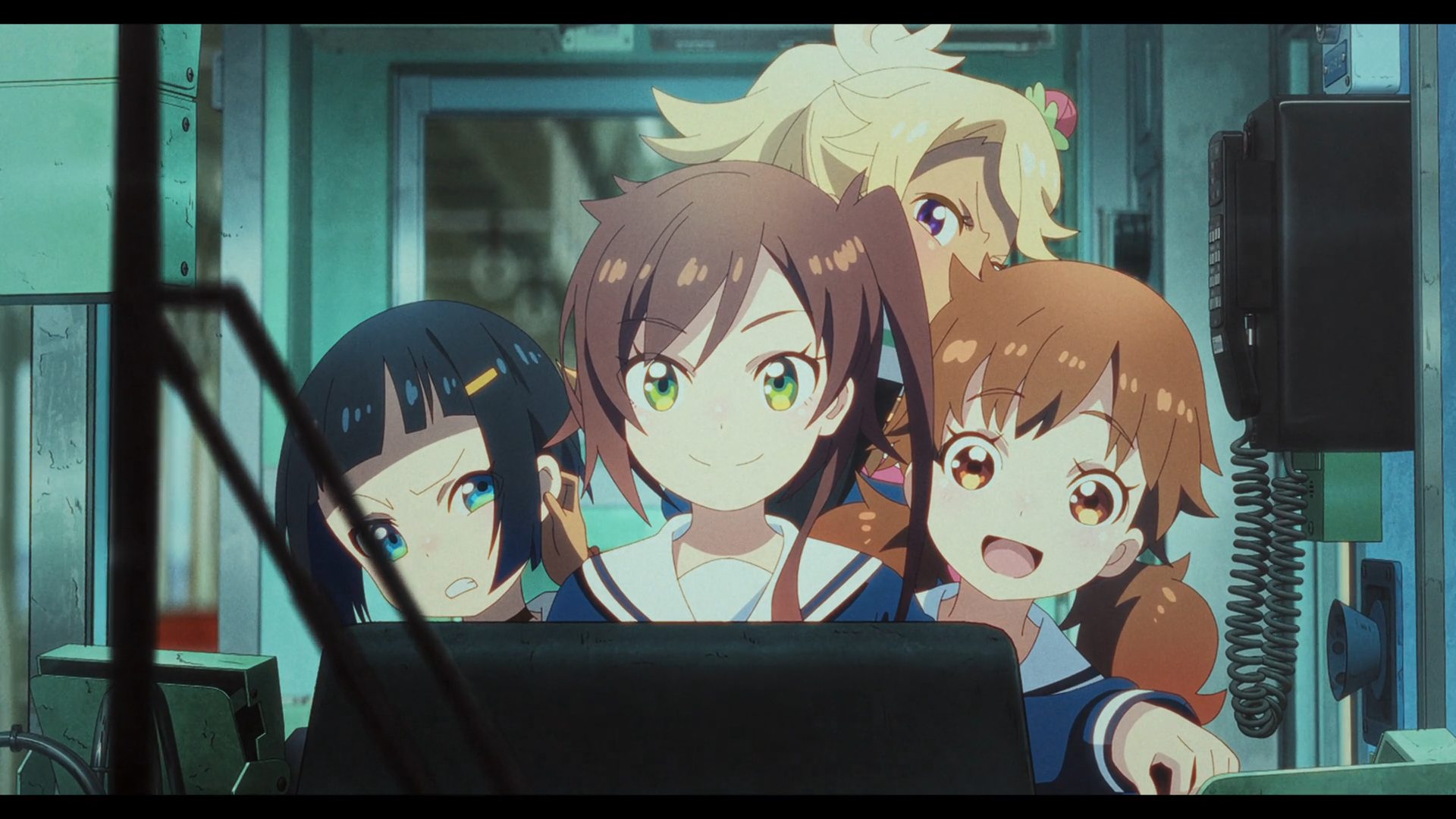
When main heroine Shizuru finds out her estranged, missing best friend Yoka might be in Ikebukuro, she and the girls set off on an old rickety abandoned train to find her, not knowing as we do that Yoka is deeply involved with the 7G disaster and the current state of the world. What would be a four-hour journey (I checked Google Maps) with a transfer to the Shinkansen has become for our heroines a journey of weeks in a stretched-out Japan where distances are much longer. The girls face down the various bizarre new worlds— mushroom horror, Gulliver’s Travels, kids’ anime fan-fiction, and weirder stuff– with a matter-of-fact, guess-we’re-doing-this plucky attitude. Personally, I liked the quietly tough “big sister” and peacemaker Nadeshiko the most. Agano jiu-jitsu is impressive, but Agano-style archery is really something.
In between stops, the girls ride the rails and get by on bitter melon for breakfast, lunch and dinner. The blonde gal and the brainy one fight over silly things, and the mom-ish one (aforementioned Nadeshiko) makes them make up. And you get to take in that good train atmosphere, led by the theme song “GA-TAN GO-TON” (literally train noise onomotopeia.) A standard Japanese commuter train is probably the most ordinary thing in the world for most of the people watching this anime, but in the true otaku spirit, this anime asks us to love it. Speaking as a train lover, it’s easy to love the idea of commandeering a passenger train for a road trip with good friends.
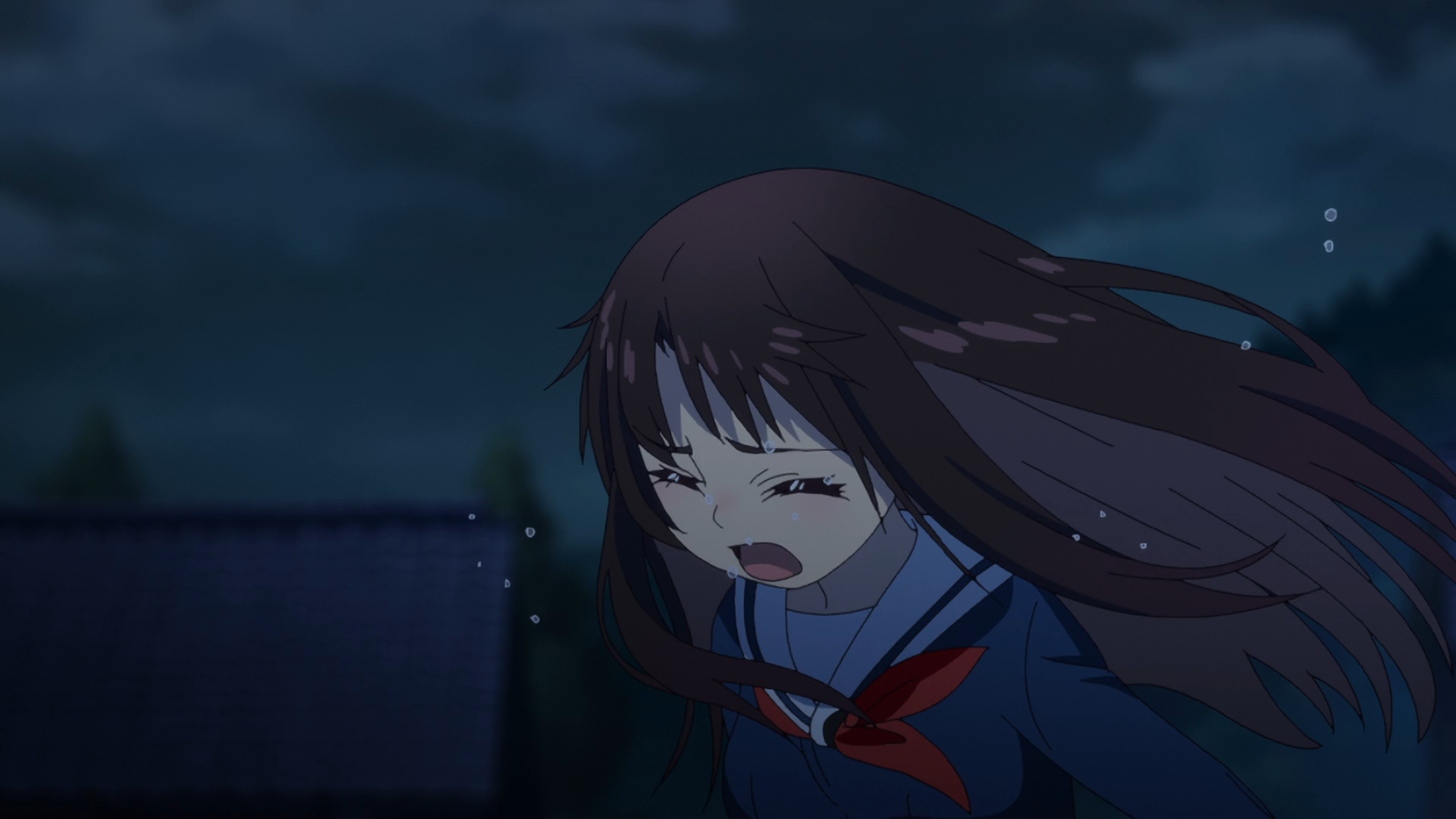
One of the things I really appreciated about this series was its emotional core: the fight between Shizuru and Yoka that led to her leaving Agano for Ikebukuro. The reason I like that conflict so much is that in that moment, our hard-headed heroine is allowed to be terrible. When the show reveals the actual content of that argument, we quickly understand why it’s been a secret. Shizuru is very clearly “the bad guy” in that moment, small-minded and mean in a way that it often feels forbidden for idealized anime heroines to be.
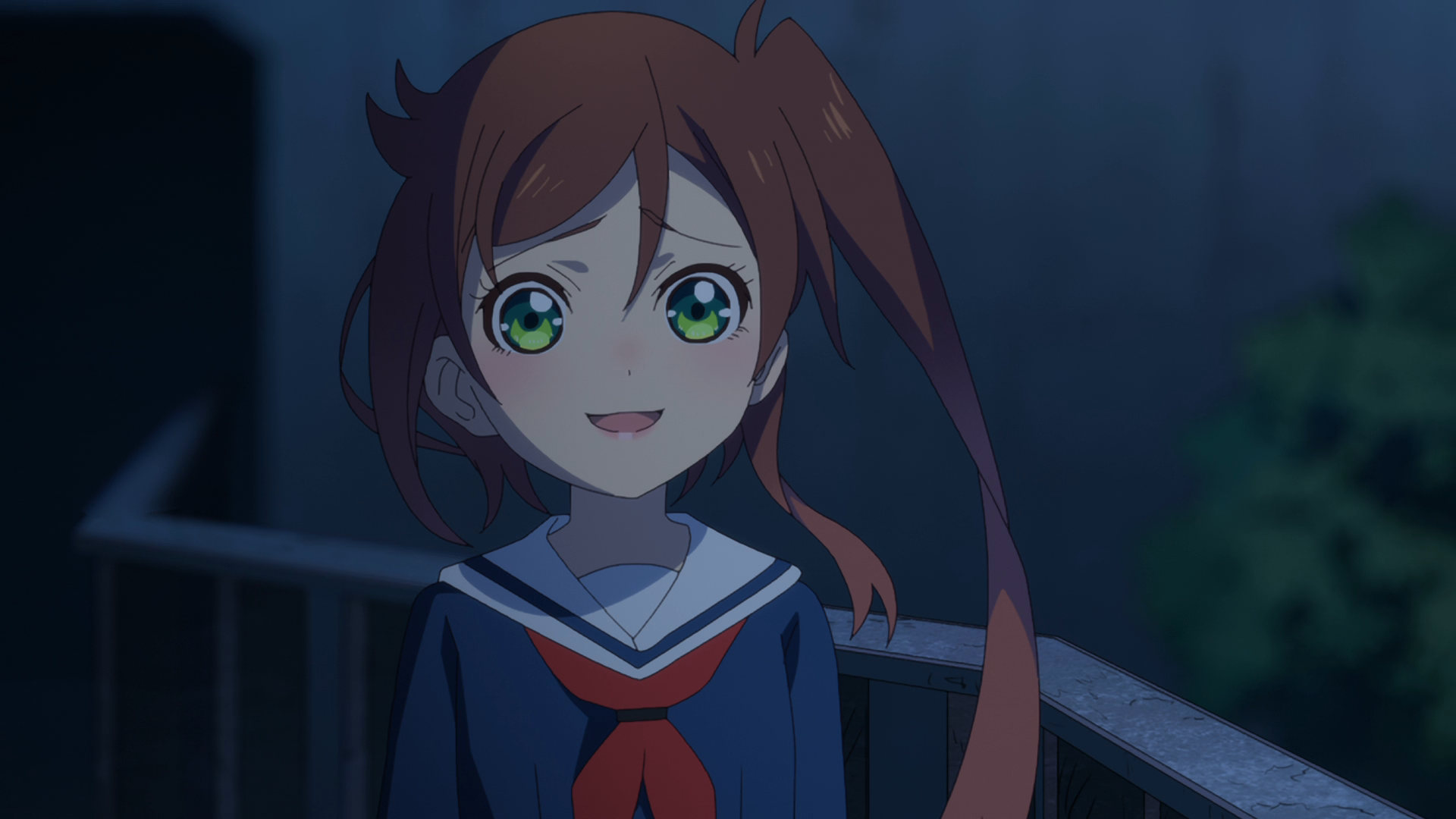
Feeling weak and needy upon suddenly hearing that Yoka wants to study astronomy— which would necessarily take her away from the Agano boonies— Shizuru resorts to childishly bullying her best friend. Suddenly desperate to keep Yoka in her possession, she puts her down with “so you think you’re better than us?” jealousy. Shizuru is downright cruel, spitting on Yoka’s dream solely because that dream would take her somewhere else. She doesn’t understand herself or Yoka well enough to even consciously understand that she’s wrong, and doesn’t face it honestly until forced to. There’s a lot packed in there.
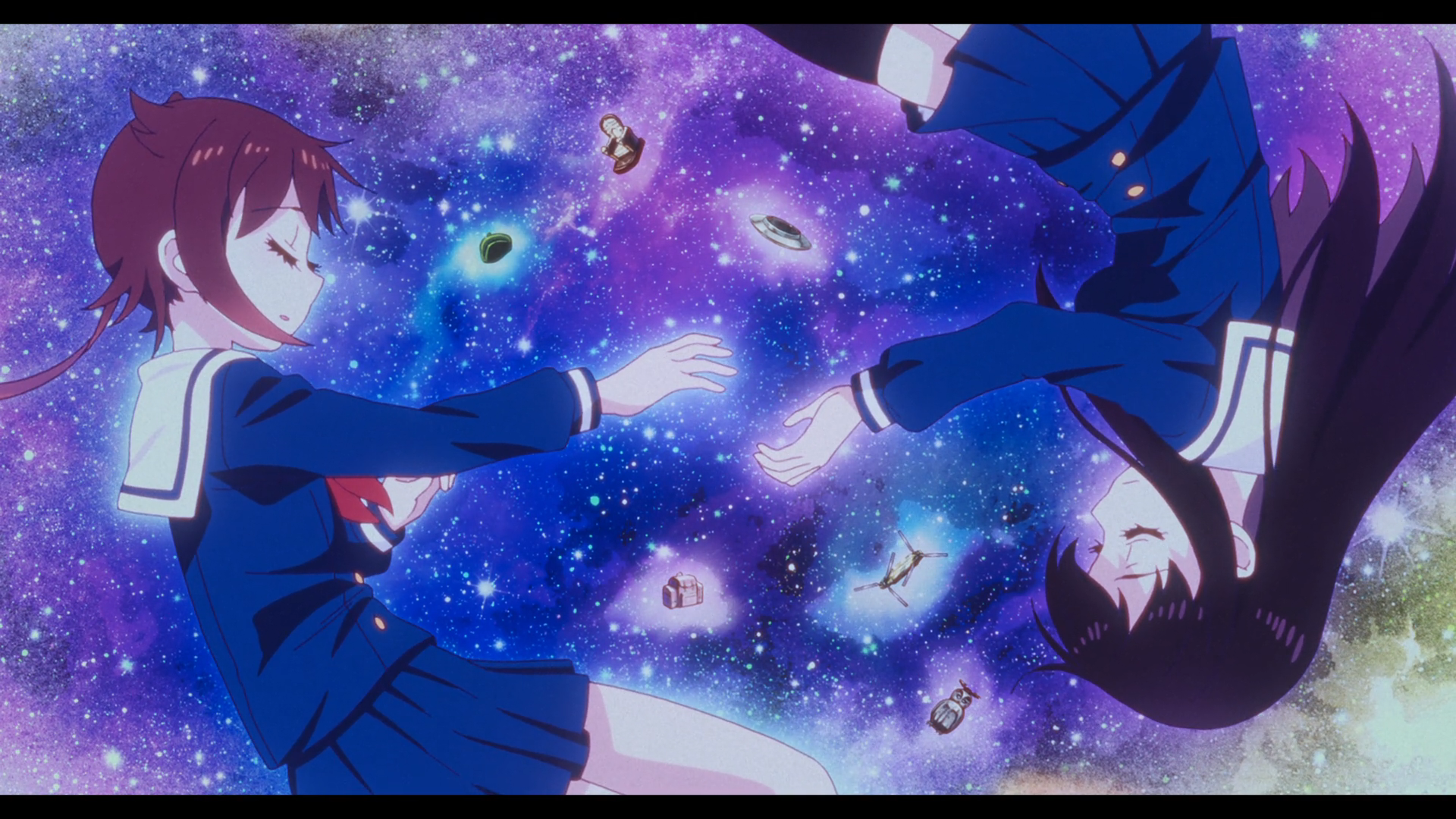
But one of my big, perhaps inevitable, complaints with this show is that we don’t really get to know Yoka at all until its very final moments. Even then we don’t get a whole lot out of her, and she feels about as much a mystery to us when everything is over as she was at the start. I really feel like an epilogue could have helped out a lot here, but unfortunately this series ends when its action does.
After all, anime seasons don’t get much further than 13 episodes anymore unless they’re large-scale adaptations. New originals like Train only get one chance, and you can feel this tension in the show as it begins to dash towards its conclusion in the second half. The show is well-paced and wraps up nicely: I just think the concept deserved more time in the middle to space it out. Note that there is a recap episode towards the end, so we might assume they lost a week to production issues as well.
Irreplaceably and unforgettably unique, Train to the End of the World is still the anime of the season, despite any lingering nitpicks. You’ll wonder how everybody didn’t see this.
Well, Dave, the reason everybody didn't see this is the current unsustainable glut of TV anime projects, not to mention discoverability issues in an age of almost completely monopolized anime streaming; there is more high-quality anime than you could ever watch, and many times more garbage anime– mostly about living inside a video game and having special powers– than that.
